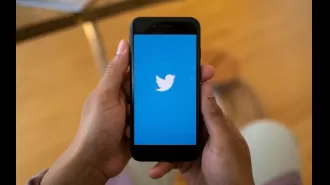A new work trend may drastically change the traditional workday.
"Chrono-working" is gaining popularity in the UK and may soon make its way to Australia, according to a top expert.
September 3rd 2024.

A prominent recruitment expert in Australia has made a bold prediction about the future of the workforce, one that could potentially shake things up on a national and global scale. The concept, known as "chrono-working," may sound like something out of a science fiction movie, but it's actually a revolutionary idea currently gaining traction in the UK.
The term was coined by British journalist Ellen C Scott and has already piqued the interest of several companies, with a 600 per cent increase in Google searches for the term. According to Robert Walters Australia and New Zealand CEO Shay Peters, this new way of working has the potential to completely transform the global economy and create a borderless workforce.
"By breaking away from the traditional 9-to-5 schedule, companies can ensure that there is always someone available to meet the needs of clients or customers, no matter where they are located," Peters explained. "This opens up a world of possibilities for a truly global workforce."
In a recent survey conducted by Robert Walters, a staggering 42 per cent of professionals believed that their mental health would benefit from a chrono-working schedule. Additionally, 39 per cent of respondents felt that having the freedom to choose their own work hours would increase their productivity and focus. Some even expressed excitement and curiosity about the concept, with 10 per cent eager to give it a try.
However, this survey also revealed that many workers feel their employers' current flexible work policies do not cater to their specific needs. Most companies still enforce a one-size-fits-all approach, such as requiring employees to be in the office or leave early on Fridays. When asked what they would like to see in terms of flexible work policies, a four-day work week was the top choice, followed by the option to work fully remote or from anywhere in the world.
Peters believes that a hybrid approach to flexible work, incorporating elements of different models, could be the key to a happier and more productive workforce. For example, early birds could start and finish earlier, while night owls could come in later and make up the time by working later. This approach could have a positive impact on employee morale, sleep quality, and overall productivity levels.
In conclusion, the concept of chrono-working has the potential to revolutionize the way we work and reshape the global economy. With its focus on individual needs and preferences, it could lead to a happier, healthier, and more productive workforce. And with the Paralympic Games Paris 2024 just around the corner, there's no better time to embrace change and watch the world transform before our eyes.
The term was coined by British journalist Ellen C Scott and has already piqued the interest of several companies, with a 600 per cent increase in Google searches for the term. According to Robert Walters Australia and New Zealand CEO Shay Peters, this new way of working has the potential to completely transform the global economy and create a borderless workforce.
"By breaking away from the traditional 9-to-5 schedule, companies can ensure that there is always someone available to meet the needs of clients or customers, no matter where they are located," Peters explained. "This opens up a world of possibilities for a truly global workforce."
In a recent survey conducted by Robert Walters, a staggering 42 per cent of professionals believed that their mental health would benefit from a chrono-working schedule. Additionally, 39 per cent of respondents felt that having the freedom to choose their own work hours would increase their productivity and focus. Some even expressed excitement and curiosity about the concept, with 10 per cent eager to give it a try.
However, this survey also revealed that many workers feel their employers' current flexible work policies do not cater to their specific needs. Most companies still enforce a one-size-fits-all approach, such as requiring employees to be in the office or leave early on Fridays. When asked what they would like to see in terms of flexible work policies, a four-day work week was the top choice, followed by the option to work fully remote or from anywhere in the world.
Peters believes that a hybrid approach to flexible work, incorporating elements of different models, could be the key to a happier and more productive workforce. For example, early birds could start and finish earlier, while night owls could come in later and make up the time by working later. This approach could have a positive impact on employee morale, sleep quality, and overall productivity levels.
In conclusion, the concept of chrono-working has the potential to revolutionize the way we work and reshape the global economy. With its focus on individual needs and preferences, it could lead to a happier, healthier, and more productive workforce. And with the Paralympic Games Paris 2024 just around the corner, there's no better time to embrace change and watch the world transform before our eyes.
[This article has been trending online recently and has been generated with AI. Your feed is customized.]
[Generative AI is experimental.]
0
0
Submit Comment





